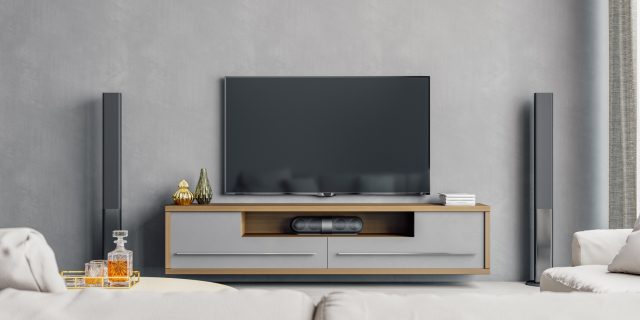Has your TV stopped working? Whether your TV has completely stopped working and no longer switches on or works but has noticeable defects, you’ll most likely want to get it fixed and return it to new, working condition.
Modern TVs are quite technologically complicated, meaning that repairs often aren’t as simple as they would be with an old-fashioned CRT television. If you have a modern LCD or LED TV, there’s a real chance that it might not be “fixable” in the conventional sense.
To make solving your TV problems easier, we’ve put together a simple guide to working out whether you should repair or replace your TV. You can find our advice below, as well as tips designed to help you get your TV back to working condition at the lowest possible cost.
Is it still under warranty?
If your TV has broken and you purchased it in the last year, the first thing you should do is check to see if it’s still covered by the manufacturer’s warranty.
Most TV manufacturers offer warranties that last for one to two years. For example, Sony offers a two year limited warranty for most of its televisions, as well as coverage for 90 days if you use the TV commercially.
Other brands like LG, Samsung and Sharp also offer warranties ranging from 12 to 24 months for new TVs. Some manufacturers are even known for covering repairs for TVs that are out of warranty in order to retain customers.
If your TV breaks during the warranty period, the best thing to do is contact the manufacturer and the retailer from whom you bought the TV. Most of the time, you’ll be able to organise an easy, quick repair or replacement.
If it’s out of warranty
If your TV is no longer covered by the manufacturer or retailer warranty, the best approach is to contact the manufacturer for more information.
Most large manufacturers have dedicated support staff that can help you diagnose the problem with your TV. If you have a smart TV that’s no longer working properly, it may even provide you with an error code to give to the manufacturer’s support staff.
Sometimes, the manufacturer might opt to send an expert around to your home to diagnose the problem with the TV. If the problem is repairable, you’ll receive a quote for the repair. Assuming the repair is cheaper than a replacement, it’s usually best to have the TV repaired.
If it’s more expensive to repair the TV than to buy a replacement, or the problem is unfix-able, it’s best to consider buying a replacement TV.
It’s also important to keep the age of your TV in mind. Modern TVs can become out of date fairly quickly, with resolutions increasing rapidly and IoT tech become more commonplace. If your TV is more than five years old, it’s often better to upgrade than to repair old technology.
Consider buying TV insurance
Finally, one of the best ways to protect yourself from the cost of repairing or replacing your TV is to buy TV insurance.
TV insurance covers the cost of breakdowns, repairs and replacements up to £2,000, meaning that almost all TVs are fully covered. Even the cost of parts, labour and calling out a technician are fully covered, meaning you’re totally protected from the cost of TV repairs or replacement.













